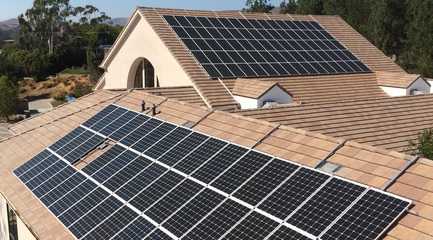
20 June 2022; MEMO: The Israeli authorities have excluded Arab communities in the country from a pilot solar energy project that will serve as a model for its solar energy industry, Haaretz revealed on Sunday. This could have the effect of excluding Arab Israelis from having access to solar energy "for years," said the newspaper, due to a change in the conditions imposed by Israel's Land Authority on the project that makes it accessible only in Jewish communities.
"The discriminatory criterion in the voltaic energy project is a climatic injustice," Haaretz reported Joseph Abramovich, a solar energy pioneer in Israel and Africa, as saying. Abramovich is a promoter of Project Wadi Attir, a Bedouin solar energy initiative in the Negev Desert. Bids have been invited "only for land owned by Jews," he noted.
Although the agriculture and energy ministries selected five plots of land in Wadi Attir to be among the winners of the bids, the Land Authority announced in January that Wadi Attir had been scratched from the list because it did not meet the criteria.
"There is no dispute," the authority told Haaretz. "The Negev has great potential for nonpolluting alternative electricity production." Extraordinary approval of Wadi Attir for the project was said to be under consideration. However, the newspaper reiterated that the agriculture and energy ministries have so far failed to convince the Land Authority to change its mind.
According to the CEO of Project Wadi Attir, Lina Alatawna, solar energy efforts in the Negev could attract private sector investments that would lead to "environmental and economic justice" and create thousands of jobs in the Bedouin community. "The Israel Land Authority has set criteria that are unreasonable and threaten the future of voltaic energy for Bedouin society," she said.
Israel's National Infrastructure, Energy and Water Ministry said that it believed that, "Agriculture in the Negev, where Bedouin land is situated, has great potential for successful involvement in solar energy production." The Agriculture and Rural Development Ministry added that it had recommended the project in the Negev because of its "great benefit to Bedouin society. The decision [though] is the Israel Land Authority's."




